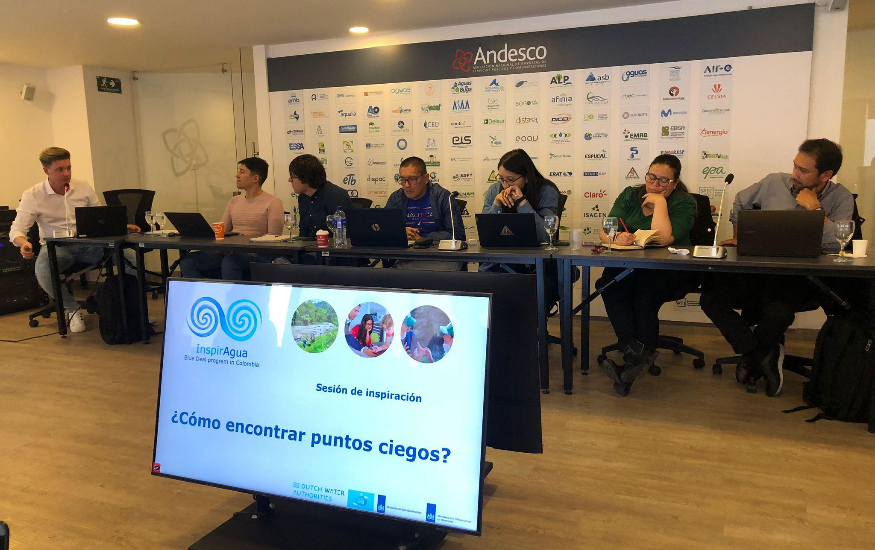InspirAgua is the Blue Deal programme on knowledge exchange in water governance in Colombia and the Netherlands. A technical conference was held from March 4 to 6 in Bogotá on the topics associated with the management of municipal wastewater.

This included topics such as: the remuneration rate for discharges, the management of rainwater, the management of bio solids, the control and permission of discharges into the sewage network, and the technical skills of the personnel in charge of the operation of the wastewater treatment systems.
Who participated?
The participants in this technical conference were the public service companies and environmental authorities that make up the regional nodes of Caldas, Huila and Valle del Cauca (Acuavalle, Aguas de Manizales, Corpocaldas, CAM, CVC and Empocaldas), Andesco, and ASOCARS. Also present were representatives of the ministries of Housing, City and Territory and Environment and Sustainable Development, the National Department of Planning, and Dutch Water Authorities.
Different actors, same goal
The event had 3 thematic axes as emphasis: the remuneration rate, bio solids, control and permitting of discharges into the sewer. And of course there was an important exchange of experiences in the area.
“It was very beneficial, because we can conclude that the different actors who are here want the same thing. It is noted that although we are different entities between service providers and ministries, we agree that there must be greater coordination to achieve better results in the future,” says Hans Geerse, coordinator within the InspirAgua programme from Dutch Water Authorities.
Technical sessions
Technical sessions dealt with the management of assets related to risks in urban sewage systems, such as experiences with the management of biosolids in the Netherlands. On the second day, a visit to the Salitre WWTP operated by the affiliated company Empresa de Acueducto y Alcantarillado de Bogotá (EAAB), allowed visitors from the Netherlands to see first-hand the technological level and size of one of the most important wastewater treatment plants in Colombia.
National strategies for monitoring and control
For the last day of the event, presentations focused on national strategies for monitoring and control, such as strategies for detecting illegal discharges and the relevance of the issue of permits (and the necessary adjustments) to improve the quality of surface waters. A Dutch example was given by Andras Koops, who presented the Dutch Water Innovation Prize winner ‘Facade control’ (see video in Dutch and Spanish).
Joint agenda
At the end of the conference, a plenary session was held to reflect and find common points on all the topics addressed in the previous sessions. These included adjustments on the economic instrument of the remuneration rate, an update of the protocol for monitoring discharges, and a training plan for wastewater treatment plants operators. A joint agenda will be defined with ASOCARS and with the support of the Blue Deal. Technical spaces will be developed on control protocols for discharges into the sewer for the development of capacities of the affiliated companies. All in all, an important meeting of sector experts in favour of strengthening the sector and creating alliances and improvement strategies.
